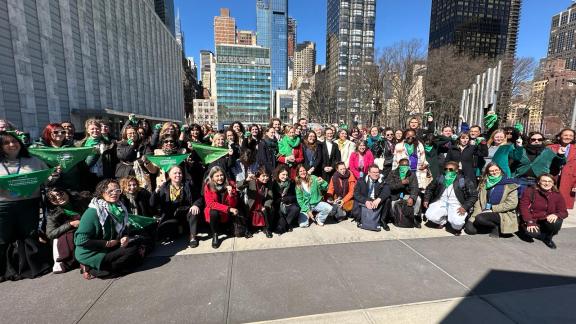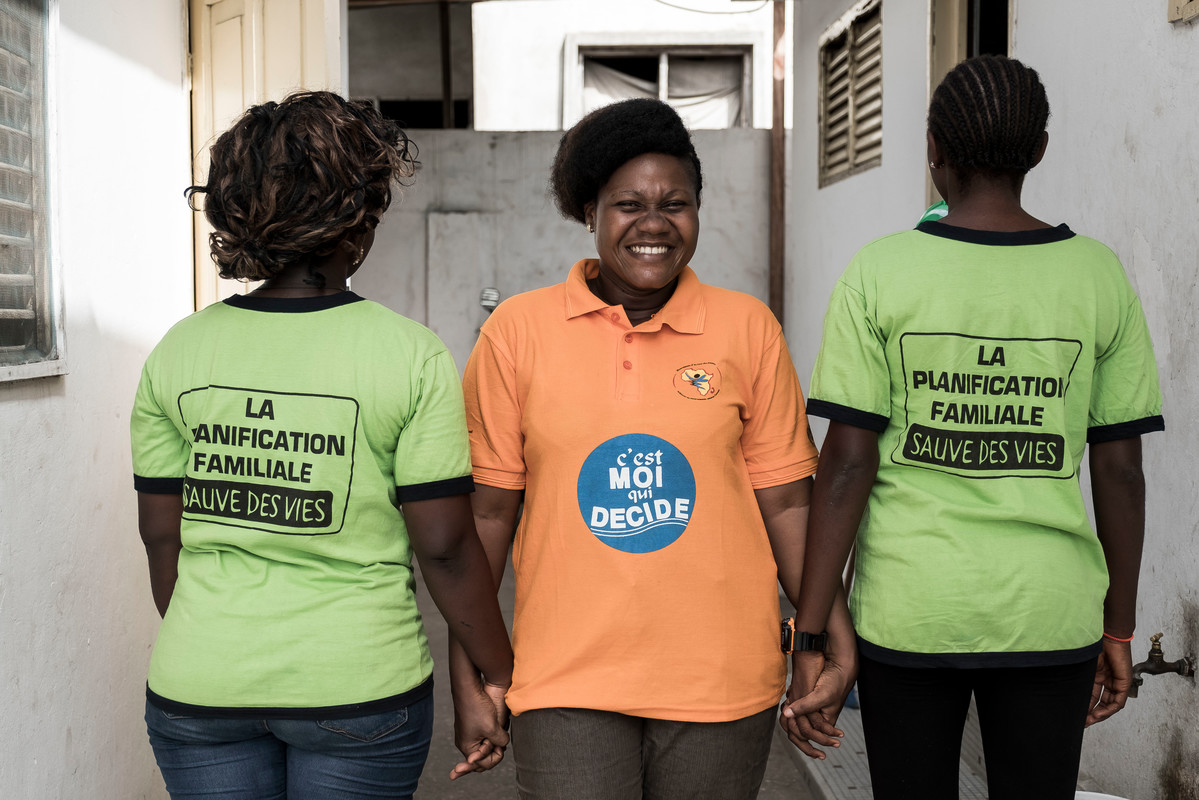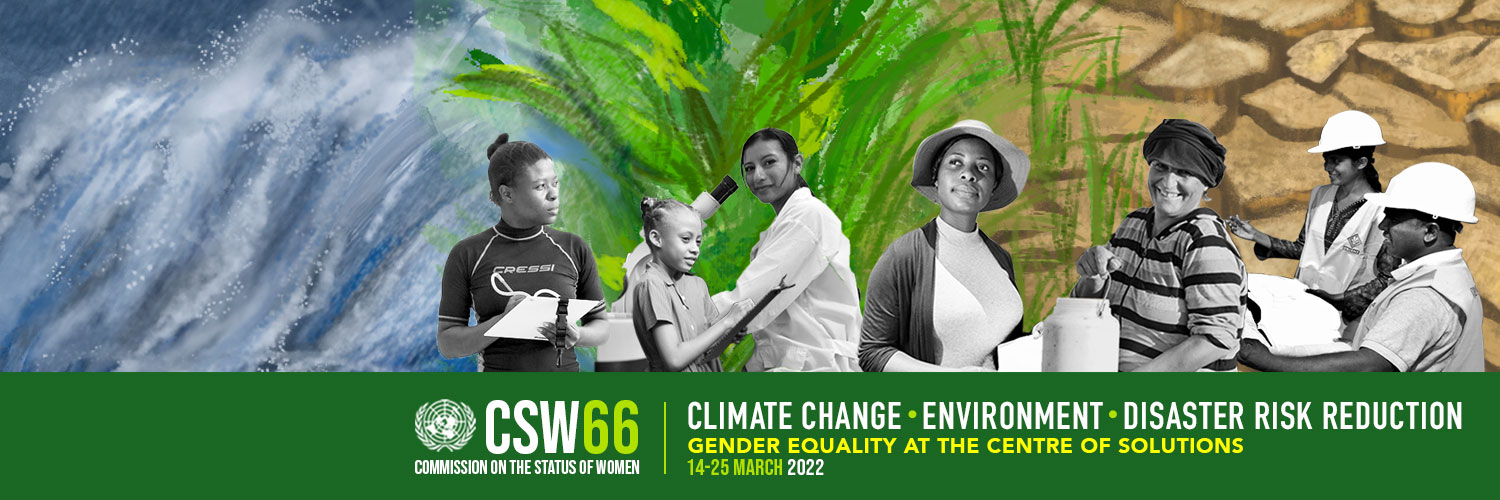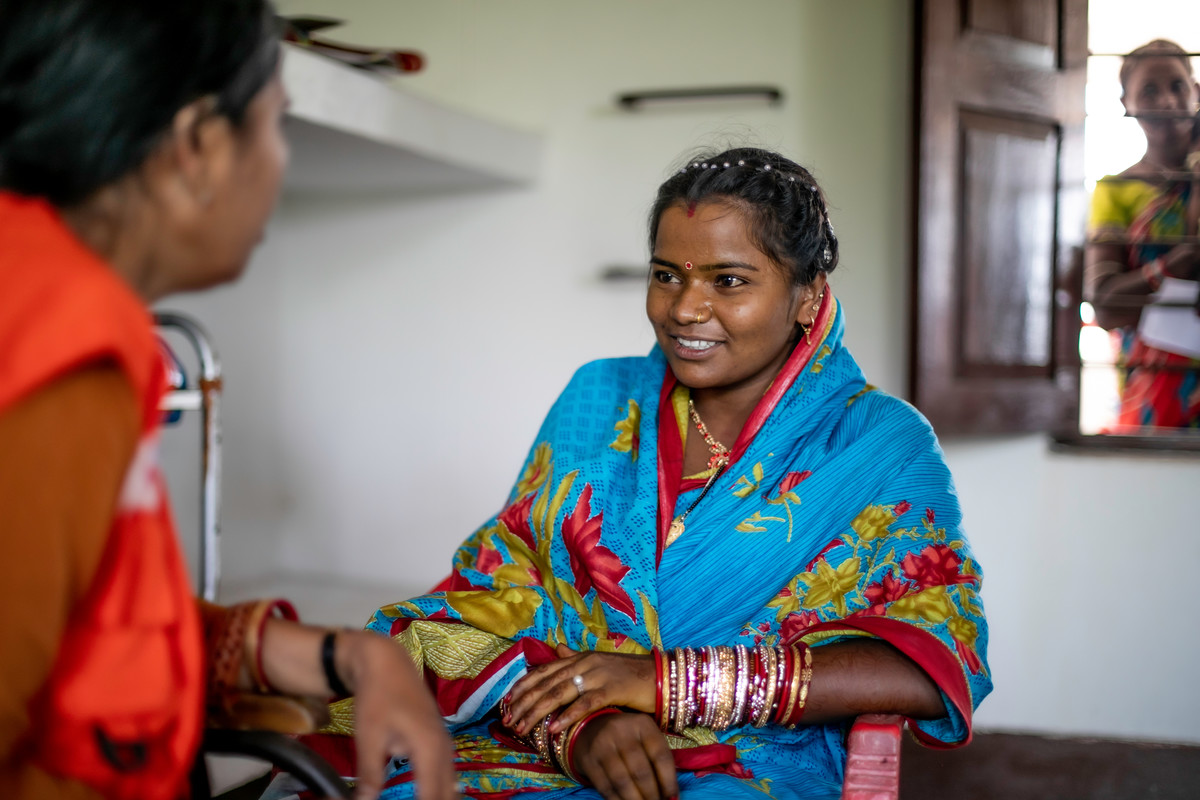IPPF welcomes the agreed conclusions of the 68th session of the Commission on the Status of Women (CSW), on the theme of “Accelerating the achievement of gender equality and the empowerment of all women and girls by addressing poverty and strengthening institutions and financing with a gender perspective”. IPPF actively engaged in the process by providing technical inputs to Member States, raising awareness about the interlinkages between SRHR, poverty, gender equality and the empowerment and human rights of all women and girls. IPPF also supported the engagement of civil society organizations (CSOs) from across the world, bringing women and girls’ real-life experiences into the conversation.
This year’s priority theme provided governments with an important opportunity to find common ground and to decide on accelerated action to respond to the broad and collective challenges related to poverty affecting women and girls, in all their diversity. Although the world has experienced continuous global poverty reduction for several decades, a period of significant crises, including the global Covid-19 pandemic, the triple planetary crisis and ongoing conflicts, resulted in lost progress. Between 2020-2022, poverty increased in low-income countries, which we have not yet recovered from. Almost 700 million people live in extreme poverty today, and an additional $360 billion of investments are needed per year, in order to achieve gender equality and women’s empowerment across the Sustainable Development Goals (SDGs).
Poverty is also a key contributor to numerous human rights violations. Globally, women and girls living in poverty are more likely to suffer the consequences of the climate crisis and food insecurity, as well as lack of access to health services, decent work, opportunities and protection measures from gender-based violence, harassment and abuse. Women also have less access to land, natural resources and financial assets.
CSW68 was the Commission’s third in-person convening after the global Covid-19 pandemic and provided an important platform for CSOs to meet, mobilize and elaborate on successful strategies. The negotiations were led by the Ambassador of the Netherlands. Discussions were animated, and there were diverse views on topics including SRHR, human rights, and multiple and intersecting forms of discrimination (MIFD).(1)
Geopolitical landscape
The geopolitical backdrop to this year’s negotiations was, at times, extremely divided, with key issues such as the right to development, sexual and reproductive health and rights, comprehensive sexuality education, MIFD, family-related language, and ongoing humanitarian crises and conflicts causing political stalemate at times. Nonetheless, in the end, a consensus was reached, and Agreed Conclusions were adopted.
Sexual and reproductive health and reproductive rights
IPPF welcomes strong references to sexual and reproductive health (SRH), health care-services, and sexual and reproductive health and rights: in particular, preambular paragraph PP27 and operative paragraphs (ii), (kk), (ll) and (mm). The consensus reached at this year’s Commission reflects the broad-based support of Member States to take steps to address the opportunities and challenges that arise in the context of SRH and poverty, and strengthening institutions and financing with a gender perspective.
Adolescents
We welcome the Agreed Conclusion’s references to adolescents and girls, recognizing the need for a life course approach and their experiences of multidimensional forms of poverty. We also welcome language to promote the full, equal and meaningful participation and leadership of young women, adolescents and girls in the context of addressing poverty and strengthening institutions and gender-responsive financing. In particular, we welcome the language addressing the gender-specific barriers to their rights and empowerment, such as all forms of violence, including sexual and gender-based violence, child, early and forced marriage, and adolescent pregnancy, as well as the unequal distribution of unpaid care work.
Multiple and intersecting forms of discrimination
We welcome references to multiple and intersecting forms of discrimination in the text given its centrality to this year’s theme. Women, adolescents, girls, and marginalized groups experiencing MIFD are more likely to be structurally excluded and it is therefore important the Agreed Conclusions acknowledge this link with poverty eradication, and ensure gender-responsive actions and policies, including through the implementation of robust social protection measures and public services.
Diversity, gender-responsiveness and human rights references
We welcome the references to the diversity of situations and conditions of women and girls in the text, as well as the reference to ensure the full, equal and meaningful participation and representation of women in diverse situations and conditions in all spheres of public life and decision-making. This includes participation and representation in economic policy, budget and financial processes, public institutions, and in designing and implementing poverty eradication policies to both address institutional gender biases and promote pro-poor, economic and social policy actions that fully respect the human rights of all women and girls.
We welcome strong references to the human rights and fundamental freedoms of all women and girls in the text. In this sense, we welcome the linkage between social protection systems and the fulfillment of women’s and girls’ human rights; the recognition of the challenges to the full realization of human rights of older women; the reaffirmation that human rights of women include their right to have control over and decide freely and responsibly on all matters related to their sexuality; and the need to ensure full respect for women and girls’ human rights in the digital context, to name some salient examples.
Putting the Agreed Conclusions into practice
Despite intensive and, at times, difficult political deliberations around key issues, the adoption of Agreed Conclusions signals the strong cross-regional support for women’s and girls’ human rights, the mandate of the Commission and its priority theme. It also reflects cross-regional support for key issues, including SRHR, human rights, and preventing, addressing and eliminating gender-based violence.
The importance and success of the Agreed Conclusions lie in its implementation at the national level. IPPF and its Member Associations are well placed as a locally owned, global Federation to work to ensure the implementation of the Agreed Conclusions at national, regional, and global levels. This will ultimately and most importantly benefit the lives of women, adolescents, girls, and other marginalized groups in the communities where they live.
______
(1) Intersectionality is a term used to describe the idea that social relations involve multiple intersecting forms of discrimination. This means that a person might experience several forms of discrimination, such as sexism, racism, and ableism, all at the same time. See UNDP, “What is intersectionality? And why is it important for gender equality?” (May 27, 2023) Available at What is intersectionality? And why is it important for gender equality? | United Nations Development Programme (undp.org)
when
Subject
Advocacy











